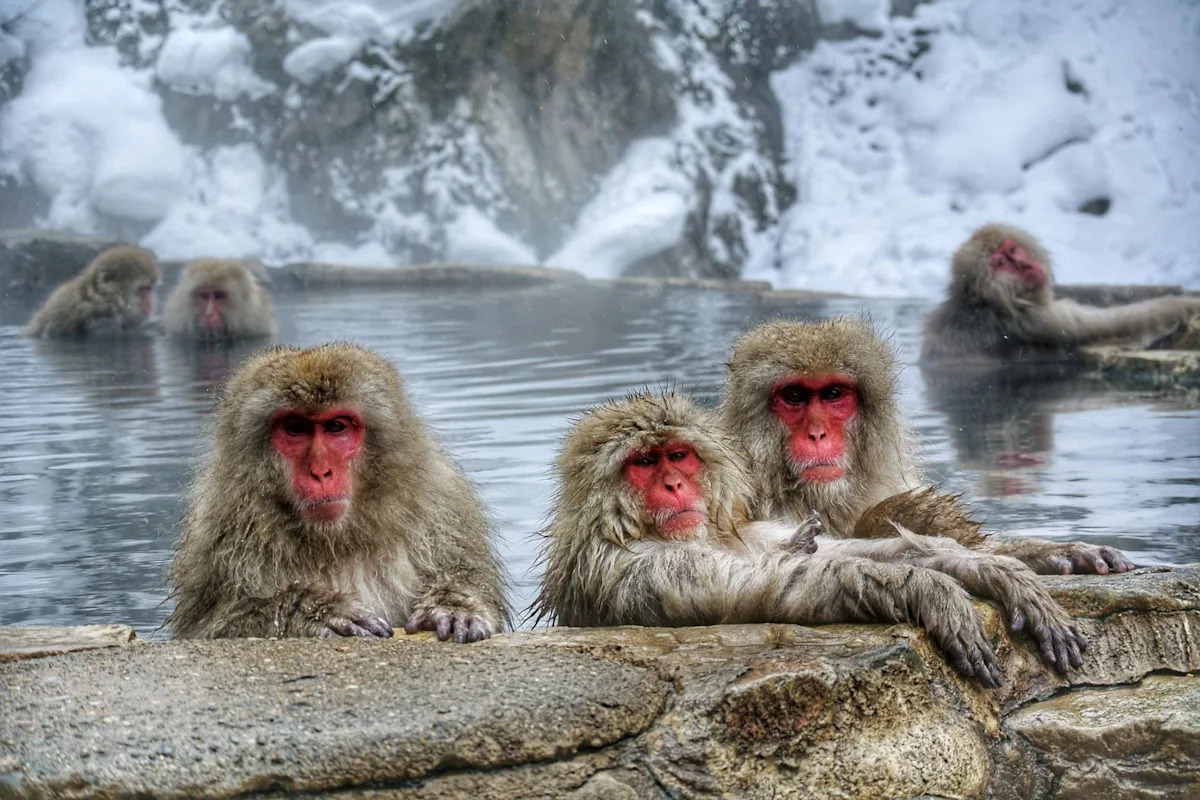Japanese macaques, often called snow monkeys, inhabit some of the coldest habitats and rely on them staying cold.
According to NHK, research shows that even small warm spells during winter are changing how these monkeys find food.
What’s happening?
A 2025 study, published in the journal Scientific Reports, tracked wild groups of macaques in Kamikochi, Nagano Prefecture, Japan, from 2022 to 2024 using NHK footage and DNA from feces.
Scientists found that once daytime temperatures rose above freezing, the number of insect species in their diets dropped.
The team, which included researchers from the University of Tsukuba and Shinshu University, looked at how monkeys ate during winter. They found that the animals rely on aquatic insects from rivers when other foods are gone.
In February 2024, rising temperatures and upstream snowmelt pushed water levels higher. According to the study, the monkeys stopped entering rivers as much; therefore, their diet showed far fewer insect species.
Assistant Professor Takenaka Masaki said the findings prove that even a few degrees of difference can change animal behavior.
Why are rising temperatures concerning?
Research from 2021, published in Scientific Reports, has already shown that snow monkeys depend on rivers for calories in the winter, including aquatic insects and even fish. This was confirmed through DNA tests from feces.
If increased winter warming continues to cause flooding in these streams, it cuts off one of the only reliable food sources they have during that time of year.
The concern isn’t limited to monkeys, as the World Meteorological Organization’s State of the Global Climate report noted widespread effects of rising temperatures on our ecosystem.
Japan’s weather agency reported that December 2023 to February 2024 was the second-warmest winter on record for the country, and the World Meteorological Organization confirmed that.
Additionally, the Intergovernmental Panel on Climate Change reported that more frequent mid-winter warm events, including rain and rapid thaws, can trigger snowmelt and flooding. This can disrupt foraging and also create risks for mountain communities living near fast-rising streams.
What can be done about the warm spells?
Japan’s National Biodiversity Strategy stressed in 2012 the need to keep forests, rivers, and coasts connected so that wildlife has better chances to adapt to any changes. We can help by supporting groups that protect rivers and work to reduce habitat loss.
The snow monkey study is a reminder that the effects of warming are already showing up and impacting both animals and humans. One warm spell is enough to disrupt a food source or flood a community.
Join our free newsletter for good news and useful tips, and don’t miss this cool list of easy ways to help yourself while helping the planet.

